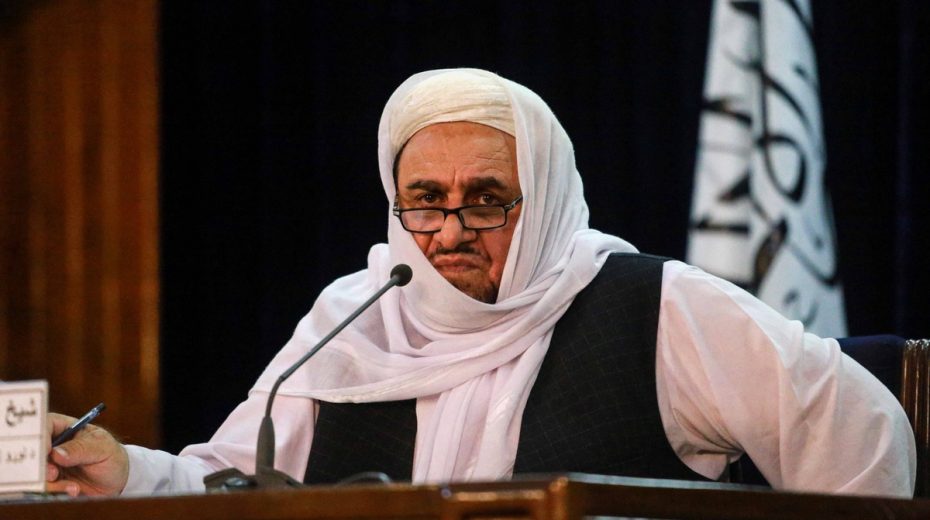The headline above is not misleading. The Pashtun tribe, which is by far the largest group within the Taliban, has proven Jewish roots as I will show below.
Last week, a Taliban spokesman in Afghanistan announced that the new government in Kabul wanted relations with all countries in the world except for Israel.
This made little impression in Israel because the Jewish state has no interest whatsoever in forging ties with this fanatical Islamist regime that disrespects human rights and came back to power through terror and deception.
Yet one should not ignore the Taliban’s outright antisemitic statement because it is part of a widespread hate campaign that has replaced long-standing antisemitism with anti-Israelism or anti-Zionism.
The hate campaign against Israel is rampant mainly in Islamic countries led by dictators or by regimes that could be dubbed “Islamist.”
Even in Arab countries that have a peace treaty with Israel, like Egypt, antisemitism is rampant, and the same goes for some of the so-called “moderate” Arab countries that have secret ties with Israel.
Egypt can be called the most antisemitic country in the world, as independent journalist Michael J. Totten once put it, and in Saudi Arabia, every electricity black-out and other disaster is blamed on Israel.
Initial optimism
In Israel, people originally seemed hopeful that the new Taliban government would be open to at least normal dealings with the Jewish state.
This idea surfaced after a Taliban spokesman gave an interview to the Israeli TV station KAN.
The spokesman, Suhail Shaheen, gave interviews to Western media from Qatar during and after the Taliban takeover and is fluent in English. He later denied that he knew that his interviewer, Israeli journalist Roi Kais, worked for a TV network in Israel.
Indeed, Kais did not mention that he was calling from Israel and only gave the correct answer when Shaheen asked him which TV station he worked for.
The last Jew leaves Afghanistan
The last Jew has now left Afghanistan because he feared for his life after receiving death threats from the local branch of the Islamic State group.
The man, Zebulun Simantov, took 30 non-Jewish women and children with him and traveled to an unknown neighboring country.
Simantov was a well-known figure in Kabul and maintained the only remaining synagogue in Afghanistan, which until 1870 had a Jewish community of 40,000 souls.
Simantov previously helped Jews who wanted to leave Afghanistan.
Among them were his wife and his children, who emigrated to Israel and now wait anxiously for Zebulun to make to aliyah too.

The Jewish Roots of the Pashtun
The Taliban’s antisemitism is all the more remarkable because the terror organization is mainly made up of members of the Pashtun clan. This clan consists of tens of millions of Muslims living in Afghanistan, Pakistan and India.
What few know, however, is that the Pashtuns have clear Jewish roots and many of them still perform Jewish rituals today.
I first heard about this some 16 years ago when I was working with a member of the Bnei Menashe, who came to Israel from Manipur province in India with the help of Michael Freund, the director of the non-profit organization Shavei Yisrael.
Freund and other Shavei Yisrael board members regularly traveled to Manipur to talk with the Bnei Menashe community about aliyah to Israel, where they are required to first take a conversion course in order to be officially recognized as Jewish.
Freund, who has a column in the Friday edition of The Jerusalem Post, also did research on the roots of the Pashtun tribe and this formed part of the basis for my analysis.
Researchers provide evidence
The member of the Bnei Menashe (Sons of Menashe) community with whom I spoke had conducted research about the lost 10 Jewish tribes that traveled to and dispersed in Asia after the exile in the Assyrian era, and was planning to write a book about it.
According to this man (Bar Lev), his research revealed that among the tribes expelled from Israel was a group of Israelites who settled in Afghanistan.
These Israelites were the Pashtun, according to Bar Lev, and he said that Pashtun women still light two candles on Friday night and make a typical Jewish dish called Chulent on Fridays.
Chulent is prepared with beef, potatoes, onions, white beans and kidney beans, and is cooked for hours on a low flame and then kept warm on the so-called “Sabbath plate.”
The Pashtun kept the dish warm on a stove, Bar Lev said.
Before Islam reached Afghanistan, many Pashtun members called themselves “Bani Yisrael” which also means “sons of Israel.” This was first reported in the 13th century by travelers visiting Afghanistan.

The historian Joseph Pierre Ferrier wrote in 1858 that Yusefzai (Son of Joseph), the leader of the largest Pashtun tribe, had given the Persian emperor Nader Shah Afshar a Bible written in Hebrew. Yusefzai also gave some other Hebrew scriptures to the Shah.
Yitzchak Ben-Zvi, the former president of Israel, also studied the tribes in Afghanistan and interviewed dozens of Afghan Jews in Israel.
In his study, Ben-Zvi wrote that some of the the Afghan tribes that coexisted with the Jews for centuries are Muslims “who to this day retain the tradition of their descent from the ten lost Israelite tribes.”
Dr. Eyal Be’eri, an Israeli expert on the Afghan Pashtun, described a series of traditions among the members of this tribe that are identical to those of the Jews.
These include circumcision of boys on the eighth day after birth, abstaining from eating meals containing a mixture of meat and dairy, and lighting candles on the eve of Sabbath.
A 2017 DNA study among members of the Pashtun Khattak tribe, furthermore, provided evidence of a genetic connection between Jews and members of this clan.
In addition, anthropologist Dr. Shalva Weil of the Hebrew University in Jerusalem has written that there is more compelling evidence about the link between the Pashtuns and the Lost Tribes than any other.
This link is of course now being denied by the Taliban leaders because it would make the current antisemitic stance of the group even more incomprehensible.
It’s easier for the Taliban to simply join the group of failed Muslim states that are fiercely anti-Israel and do not waste an opportunity to blame all their ills on the Jewish state.














